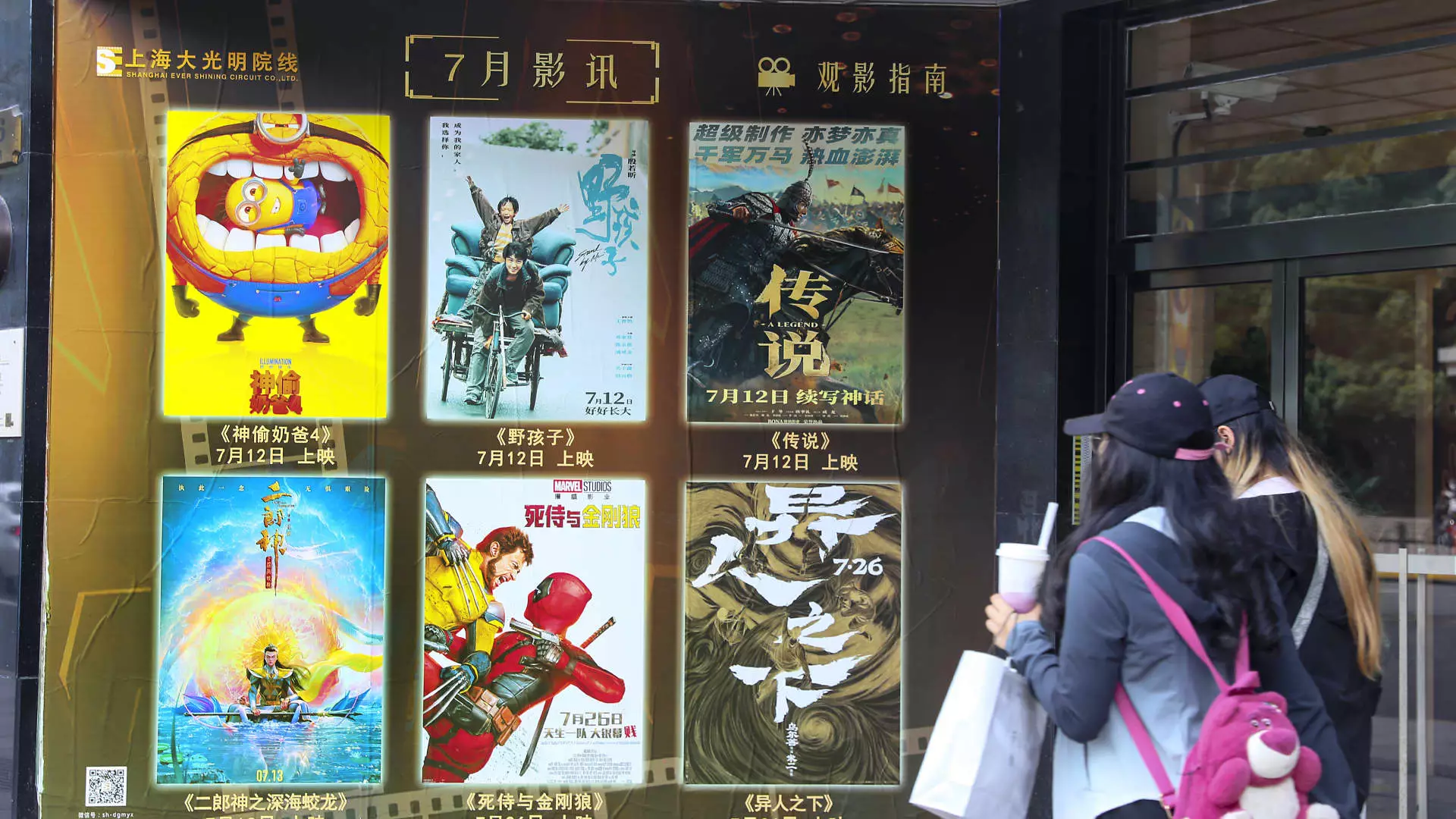Hollywood’s once-untouchable market in China is rapidly evolving, reflecting the precarious tightrope American filmmakers now have to walk in the midst of Donald Trump’s contentious trade war. After Trump ramped up tariffs on Chinese imports, the Chinese government retaliated in a surprising and damaging fashion: by imposing restrictions on Hollywood films in their theaters. What used to be a lucrative and almost guaranteed revenue stream for American studios is now at risk of drying up. Companies like Disney and Warner Bros. Discovery, once bastions of entertainment wealth, have seen their stock values tumble, further tightening the noose on an industry already reeling from the pressures of global uncertainty.
It’s hard not to feel a sense of irony here. American filmmakers, who used to tailor movies specifically to fit the tastes of Chinese audiences, are now caught in a paradox where their very presence in China is under constant threat. The allure of the Chinese box office, once a golden ticket, has faded sharply. Due to the rise of a vibrant domestic film industry that resonates more deeply with local audiences, the reception of Hollywood productions has diminished. This new reality is not just a minor setback; it fundamentally changes the calculations of profitability for studios, forcing them to reconsider how they gauge success.
The Economic Consequences of Diplomatic Warfare
Ann Sarnoff, former CEO and chairwoman of Warner Bros., aptly noted that the Chinese market has become “very challenging” for U.S. studios. The economic landscape is shifting under our feet, with rental rates halving and audiences increasingly flocking to homegrown films. What this signals is a significant seismic shift, as studios can no longer rely on China to bolster their worldwide profits. The previous estimates that involved tens of millions from the Chinese box office are beginning to feel like a distant memory. The current reality: many studios have to treat the Chinese market like an afterthought, if they include it at all.
The expiration of the U.S.-China Film Agreement in 2017 signified a pivotal point in this relationship. This agreement, which once ensured that 34 U.S. films would grace Chinese theaters each year, no longer serves as a safety net. Academic insight from Aynne Kokas, a professor at the University of Virginia, reveals that during the previous Trump administration’s trade war, the motion picture industry was largely overlooked in negotiations. The focus was on commodities, technology, and labor, leaving Hollywood to fend for itself as the Chinese box office began its upward trajectory.
The Rise of Domestic Competition
China’s local film industry, fueled by impressive technological advancements and captivating storytelling, has begun to churn out blockbusters that resonate more with their home audience. The numbers speak volumes: nine Hollywood titles garnered over $100 million at the Chinese box office in 2019, while only eight American films even cracked that threshold in the following five years. The shift to movies like “Ne Zha 2,” which broke records by crossing $1 billion at the Chinese box office, starkly illustrates how American studios are losing the game on their home turf.
This relentless rise of Chinese cinema is not a coincidence; it’s a natural consequence of evolving societal preferences. Where once Hollywood ruled the cinematic landscape, aspirations for storytelling now resonate with films that reflect local culture and societal narratives. Meanwhile, the blame for declining interest in American films lies not only on government policies but also within Hollywood itself. The industry often struggles to adapt to the tastes and values of an increasingly sophisticated audience thirsty for authenticity and representation.
An Uncertain Future Awaits
The dark clouds hanging over Hollywood due to this ongoing trade war threaten not just box office earnings, but the entire economic fabric of the industry. A weakening U.S. dollar complicates matters further, as box office returns from international markets become easier to swallow at lower conversion rates. Still, the increase in operational costs suggests that Hollywood is trapped in a dilemma, where a financial rebound seems out of reach. In this quagmire, where tariff decisions fluctuate unpredictably, industry executives are left guessing about the future of an industry that has always claimed innovation as its hallmark.
As the trade war continues to rage, one truth stands starkly clear: Hollywood is at a pivotal moment. It is gripped by both external and internal forces that not only threaten its financial viability but also its very identity. It must adapt, pivot, and redefine success in a fragmented landscape, lest it risk losing its prominence in the ever-evolving global narrative.


Leave a Reply